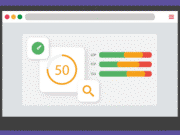Have you invested a lot of time and money in designing a website or blog? Does your website look impressive but not getting enough traffic? Then you may have missed an essential element called SEO to promote your website or blog.
SEO is a vital aspect of digital marketing, and you can’t overlook it if you want to reach your product to the target audience. Your website or blog will have no value if you are not getting the right number of visitors to it.
SEO is a long-term process, and you can’t learn it overnight. Here we have covered all the aspects covered under Technical, On-page & Off-page SEO which will help you to understand all nitty-gritty involved in it:
1. Technical SEO
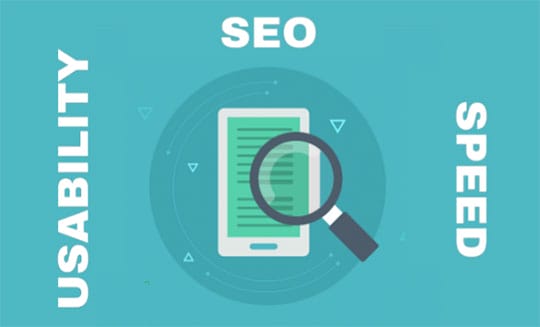
Technical SEO is an essential part of the entire SEO process, and it optimizes your website or blog for indexing and crawling. Through technical SEO, you can persuade search engines to crawl, interpret, index and access your website smoothly. Here is the list of tricks that you need to follow in technical SEO:
1.1. Website Security
Being a website owner, make sure you provide a sense of security to visitors when they click on your website link. This is possible by opting for an SSL certificate that produces an encrypted link between browser and web server. A website URL that starts with HTTPS is likely to get more trust from visitors than a website that begins with HTTP.
Recommended for you: Understanding Enterprise SEO & Why You Might Need It.
1.2. Website Loading Time
Search engines give preference to websites that take minimum amount for loading time, and this is the reason why site speed is another aspect you can’t ignore. Several factors influence the speed of your website – hosting services, DNS provider, size of image files, code of your website and number of uncompressed web pages.

1.3. Responsive Design
Make sure your website is responsive, and it displays all the pages correctly on different devices such as laptops, desktop computers, tablets, and smartphones. Opting for a responsive template is highly recommended while building your website.
“Google’s 2018 switch to mobile-first indexing is a definite sign of things to come. Mobile devices enable a clear majority of all web usage today, so developers need to design responsive, mobile-friendly sites.” – as mentioned by SERPs SEO.
1.4. Website Analytics
Once you have enough pages on your website, it is recommended to register it under the Bing Webmaster Tools and Google Search Console. It will give you access to several other key features such as analytics, number of backlinks and usability data of your website.
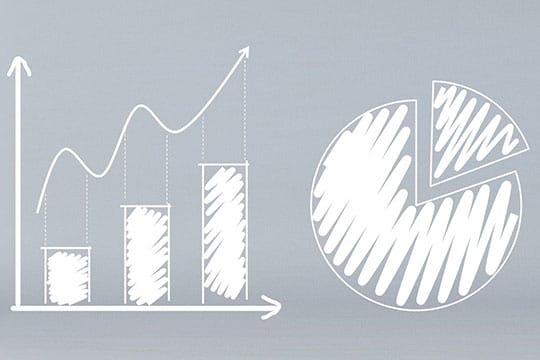
1.5. XML Sitemap
Don’t forget to create an XML sitemap of your website and make sure you submit it to Google Search Console. These days, most of the CMS platforms such as WordPress or BigCommerce help you to extract XML sitemap for your website by installing the right plugins. In case you can’t get it from your CMS, you can seek the help of a sitemap generator to create a proper sitemap for your website.
1.6. Structured Data (Schema Markup)
Adding structured data (Schema.org) is another effective way that will help search engines to identify the content on your website. It will also help you to get better traffic and also enhance your CTR, thereby giving a significant boost to your website revenue.
2. On-Page SEO
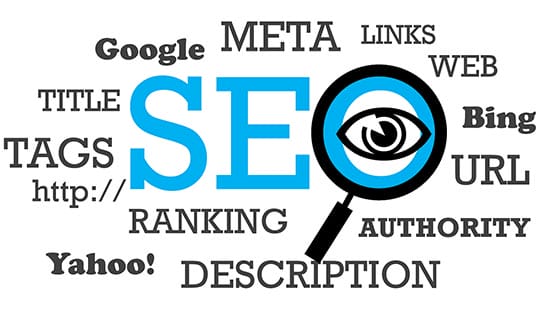
On-page SEO is also referred to as on-site SEO, and it involves optimizing front-end as well as back-end elements of your website to get it ranked in top pages of search engine. Here is a list of techniques that come under on-page SEO which will help you to boost the significant amount of organic traffic to your website:
2.1. Website URLs
Create SEO friendly URLs and always try to add your main keyword in the page URLs. Keep your URLs small, yet convincing, as short URLs have the edge over long ones in search engines.
2.2. Blog Post Formatting
Add the targeted keyword of your blog post in the H1 tag. Start the title of your article with a focus keyword. If possible, add different modifiers to your article title. Your focus keyword should also appear in the first paragraph or initial 100 words of your blog post.

2.3. Plagiarism-free Content
You need to have original content on your website so that search engines won’t penalize you for plagiarism. Having duplicate content on your website will also give reasons for search engines to keep your website hidden.
2.4. Content with Rich Media
Increase user interaction on your website pages by adding different kinds of multimedia files such as images, infographics, videos, and diagrams. It will help you to decrease the bounce rate on your website, and visitors will end up spending more time on your website pages.
2.5. Outbound and Internal Linking
Add internal and outbound links in each of your blog posts, and most webpages. Internal links help you to link some old blog posts of your website to a new article. This way, you can persuade the reader to jump from one webpage to others, which will help to increase the amount of time spent by the user on your website.
Outbound links are the links given from your article to some high authority websites such as Wikipedia. You should always consider adding a few internal and outbound links.

2.6. LSI Keywords
Another effective on-page SEO strategy involves adding Latent Semantic Indexing (LSI) keywords in each of your blog posts. The algorithm of the search engine uses them to recognize relevance to search terms and the quality of content on your website.
You may like: Are You Ready for Voice Search? Here are 5 Steps to Optimize Your Content.
2.7. Social Sharing Buttons
Adding social sharing icons on your website home page is another vital on-page SEO technique you can follow. It will not only help you to get more visits but will also increase the social sharing of your blog posts to a significant extent.
2.8. The Length & Quality of Content
The content quality and length of your articles play an important role in ranking your website on the top pages of your search engine. So, aim for highly relevant and detailed information in your blog post to keep visitors interested while reading your content.

2.9. Meta Data
Add Meta-descriptions for each of the pages on your website. For this purpose, you can make use of different plugins available and make every post or webpage SEO optimized.
3. Off-Page SEO
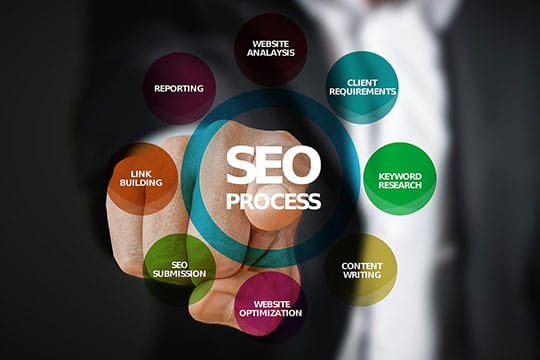
Off-Page SEO tells search engines that your website is a good search result as it has high authority, trustworthiness, and accessible. Here is a list of effective off-page SEO techniques you can follow:
3.1. Generating Natural Backlinks
Create shareable content and get natural backlinks from other popular blogs or websites. Try to reach out to all the influencers in your industry and ask them to check out your blog and share it with their followers.
3.2. Social Media Engagement
Social media engagement is one of the most effective techniques in Off-page SEO. You can share your content on different social channels such as Twitter, Instagram, Facebook, Pinterest, Quora and many more.

3.3. Social Bookmarking
Make sure you bookmark your website or blog on famous social bookmarking platforms. Participate in discussion forums in the relevant niche and create threads by replying to questions or answers of other users. The business directory is also another medium where you can submit your website to create an online presence. This way you will not only get backlinks to your website but you will also get a lot of traffic.
3.4. Guest Posting
Submit your posts to websites who are accepting articles. You can also contribute as a guest author for reputable sites in diverse niches. This way, you can get backlinks to your website, which will help you to increase your brand and site’s authority. Try your best to earn backlinks from sites that have a low spam score and a high trust flow.
If you have so many multimedia files on your website, then you can consider submitting them to video and image submission platforms.

3.5. Broken Link Acquisition
Broken link acquisition is another tactic that will help you to get backlinks from high authority websites. You can offer perfect replacement to broken links by linking anchor text to your website.
3.6. Competitor Analysis
Analyzing your competitor’s website is also a part of an Off-page SEO strategy. You can check out where your competitor is getting backlinks and try to contact similar sources to increase the popularity of your website. You can also watch out for digital marketing techniques that your competitors are following and try to pitch your website to the targeted audience through a similar medium.
You may also like: Here’s Why You Need to Develop More Interactive Content.
The Bottom Line

SEO is a quite complex and long-term process that demands a lot of consistency from your side. Most of the time, you may end up reaping benefits of SEO within a short time, but sometimes it may take a longer time than you may have expected. So, it is highly recommended to make an SEO audit of your website on an occasional basis to keep track of all the progress.
You can modify your strategies after analyzing the influence of your SEO tactics on the overall performance of your website. This guide about internet marketing will help you to keep things well organized, and you can run your SEO campaign most successfully. Systematically stick to the above strategies as they will help you to remain one step ahead and stand out your website in the competition.


